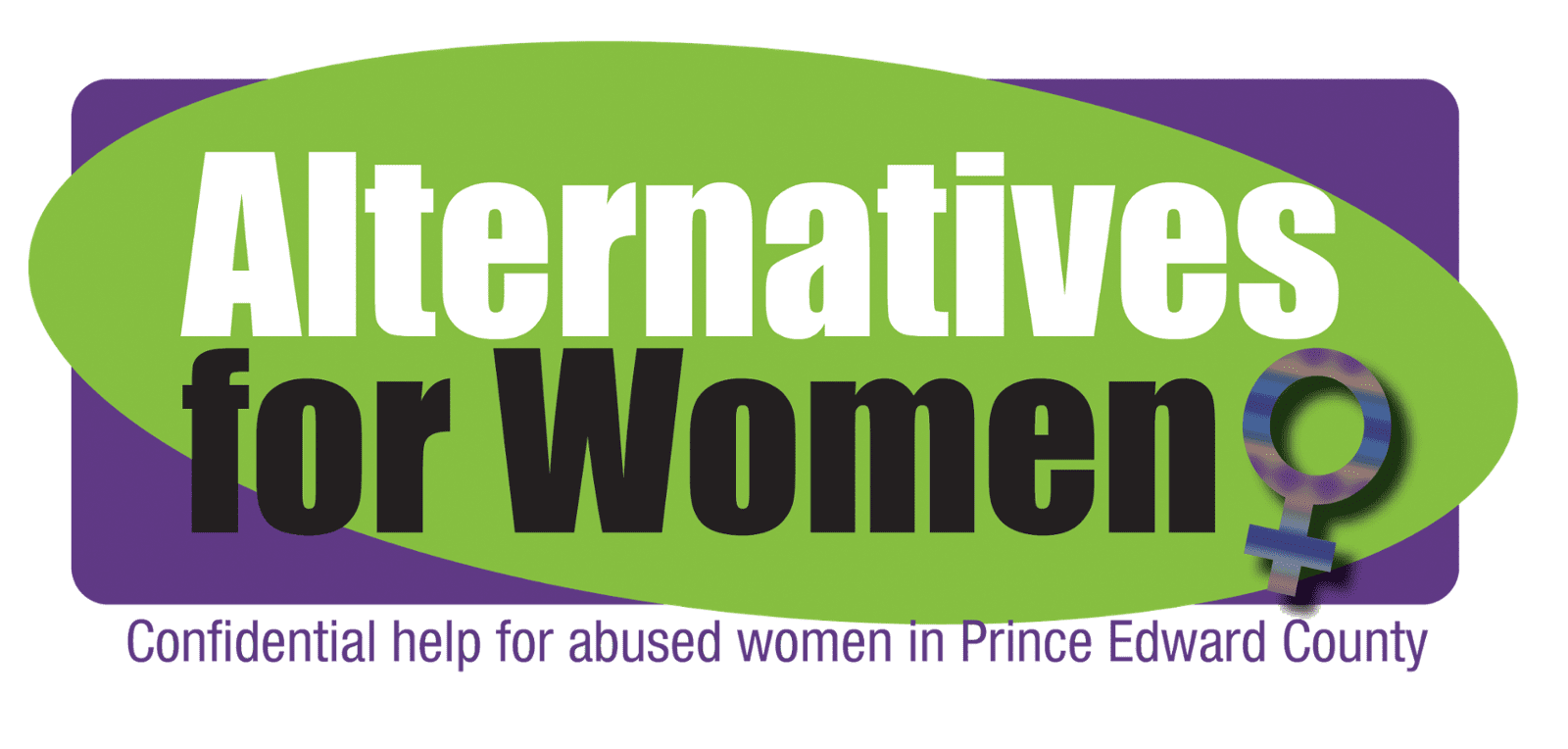Who we are and what we do.
For our inaugural article of our revitalized blog, it seems appropriate to re-introduce ourselves by telling you about our services and our commitments. Here at Alternatives for Women we are committed to ending violence against women, girls, and gender diverse people in Prince Edward County.
Our services include free confidential non-judgmental counselling for women who are experiencing or have fled abuse. Our crisis line provides 24-hour information and support to anyone who calls. This information can include offering insight and direction about how other agencies can be supportive to the person calling.
We also have second-stage housing units where women can live for up to one year, all while receiving ongoing support in finding and securing sustainable stable safe housing. Our transitional housing units (transitional and second-stage mean the same thing) are offered at a rent-geared-to-income rate, ensuring that the women we support are not facing a financial barrier to housing
Our counsellors provide 1:1 counselling on topics ranging from the women’s experiences of abuse, red flags, legal options, safety planning, accessing financial and other supports, and more. The list is not endless, but it is long. We also offer group sessions where women support one another in navigating the complexities of leaving abuse and developing self-advocacy and empowerment skills. Additionally, there are groups for socialization and fun, such as craft groups.
Another service we provide is public engagement and education on issues related to violence against women, girls, and gender diverse people. The goal of this engagement is to raise awareness of the issues, but more importantly to support a movement in the public away from relationship practices that can go down a path towards abuse. Instead, we support people learning to adopt relationship styles that emphasize equality and in which they practice compassion towards themselves and others.
It is important in these engagements to be clear about what it is we are working towards ending. Some of the terms that are used are domestic violence, intimate partner violence, and gender based violence. Before breaking these down let us make clear that we understand violence extends beyond the physical. Indeed, we are a little bored of having to point out how financial, emotional, psychological, spiritual, and sexual abuse are violence. We will have future blog posts where we explore each of these types of abuse in more detail. Here let us be clear: all of these are violence. All of these are abusive behaviours.
Our mandate is to provide services to women leaving situations of intimate partner violence (IPV). What is meant by IPV is violence inflicted within the context of an intimate romantic or sexual relationship. It differs from the domestic violence, in that the partners need not be living together AND that the relationship between the abuser and the abused is one of intimacy along sexual/romantic lines.
Another term that is often used in our work is gender based violence (GBV). This term refers to all violence perpetrated against people who are not masculine. This means that women, girls, and transwomen, as well as non-binary people and gender diverse people are all considered to fit into the category. Their gender is in some way relevant to why and how they are abused. We would support any of these people if they were experiencing or leaving an abusive intimate partner.
Some other terms to consider in the work we do are the terms used to identify the people who have been abused. We avoid using the term victim, as it further disempowers a person who has been disempowered through abuse. We will use a term like survivor, or person affected by violence. There is a subtle distinction between these latter two. Survivor is a term that focuses on the identity of the person – they are a survivor, and that is central to who they are. Person affected by violence focuses on the individual or the person first. They are not the violence. It is not central to who they are.
There are good reasons to use identity based language (survivor), and good reasons to use person-first language (person affected by violence). How to determine which is used is easy; simply follow the lead of the person telling you about the abuse. They are the writer of their own story and the driver of their own car. They may be on a journey between the two – maybe even going back and forth between them. You can support them in that journey by listening to them, believing them, and pointing them towards resources they might not know about, like Alternatives for Women.
